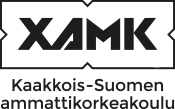Information systems in SCM (5 cr)
Code: IB00CP40-3002
General information
Enrollment
02.01.2019 - 14.01.2019
Timing
07.01.2019 - 28.04.2019
Number of ECTS credits allocated
5 op
Virtual portion
5 op
RDI portion
2 op
Mode of delivery
Distance learning
Campus
Kouvola Campus
Teaching languages
- English
Degree programmes
- Degree Programme in International Business
Teachers
- Markku Nikkanen
- Jagat Kunwar
Teacher in charge
Jagat Kunwar
Groups
-
IBKV17SP2
Objective
You are able to:?
know and appreciate that strategic thinking is important for developing appropriate supply chain strategies that enhance competitive performance?
appreciate the challenges of creating a lean supply chain?
recognise that managing inventories is both a strategic and an operational issue?
explore the link between demand and supply planning?
recognise how lean, adaptive and demand driven supply networks are enabled through IT?
Content
How to recognise different opportunities for time compression in the supply chain and build more agile supply chains?
Why are lean and Six Sigma integral parts of supply chain management?
What are the financial and strategic impacts of managing inventory more effectively?
What are the roles of demand forecasting, demand management and Sales & Operations Planning in the supply chain?
What are the impacts of new technologies and innovation upon supply chain strategies?
Teaching methods
Scheduled track:
You are able to:
- know and appreciate that strategic thinking is important for developing appropriate supply chain strategies that enhance competitive performance
- appreciate the challenges of creating a lean supply chain
- recognize that managing inventories is both a strategic and an operational issue
- explore the link between demand and supply planning
- recognize how lean, adaptive and demand driven supply networks are enabled through IT
Assessment methods and criteria
You can
a) use professional vocabulary and concepts in an expert way in different situations.
b) evaluate information sources critically
c) work as team members in working life expert duties and identify and describe the problems of the professional field.
d) evaluate operations in customer, user and target group situations.
e) choose appropriate models, methods, software and techniques according to the purpose and justify these choices.
f) apply critically the ethical principles of the professional field in different situations.
Qualifications
Supply chain management 5 ECTS credits
